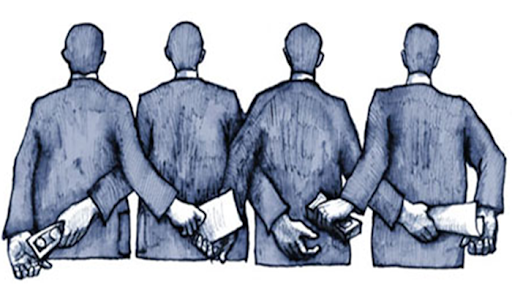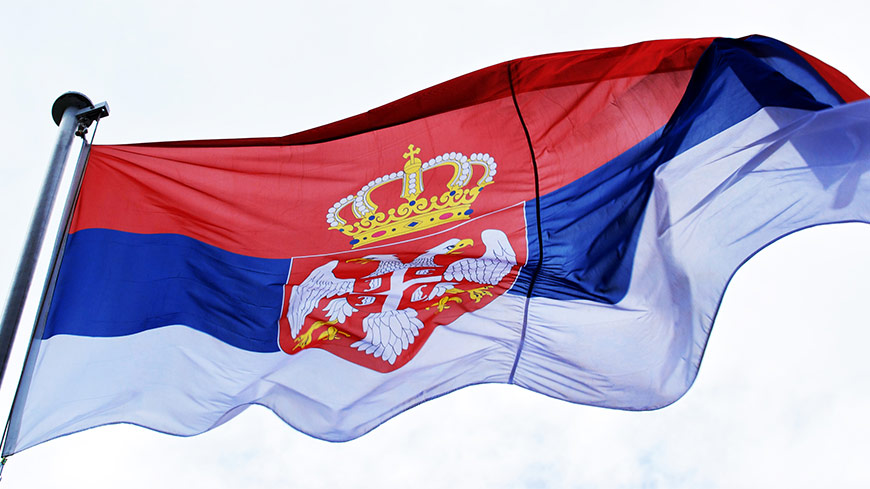Corruption in the Western Balkans – The Case of Serbia

Almost
everyone has once in their life heard about corruption and how it can be a big
problem in societies where it is prevalent. Often you could hear that the
region of Balkans is a synonym for corruption. Firstly, let’s see what
corruption presents. According to the definition of Transparency International
we can define corruption “as the abuse of entrusted powers for private gain”.[1]
Corruption can take many forms and can include behaviours
like public servants demanding or taking money or favours
in exchange for services, politicians misusing public money or granting public
jobs or contracts to their sponsors , friends and families , and corporations
bribing officials to get lucrative deals. When it comes to Western Balkans and
Serbia it seems like all forms of corruptions are present. For instance, it
seems like that in the Balkans corruption is present from a low-level, such as
bribing a police officer, nurse, doctor, and that is socially accepted.
Corruption
is a problem in Serbia, and the prevalence of bribery exceeds the regional
average. Government procurement, natural resource extraction, and the judiciary
are especially vulnerable to fraud and embezzlement. The Serbian Criminal Code
and the Anti-Corruption Agency Act criminalize public and private sector
corruption, attempted corruption, extortion, abuse of office, bribing a foreign
public official, money laundering and active and passive bribery. Despite
strong political impetus to fight corruption, enforcement and criminal
prosecutions are largely ineffective. Even though facilitation payments and
gifts are criminalized by law, they are common practice in the public and private
sectors. By adopting last year’s Healthcare Law bribery in Serbia was in fact
legalized. In fact, doctors in Serbia, according
to new law, are able to receive presents up to 462 EURO in value (but not the
money). Laws like this cannot help in fight against the corruption, they actually
neglect it.

Serbia’s
anti-corruption legislation is found in numerous laws. Serbia’s Criminal Code,
Anti-Corruption Agency Act, Law on the Prevention of Money Laundering, Law on
Conflict of Interests 2004 and Law on the Criminal Liability of Legal Entities
for Criminal Offences criminalize public and private sector corruption,
attempted corruption, extortion, abuse of office, trading in influence, bribing
a foreign public official, money laundering and active and passive bribery.
Moreover, in this place I would like to remind that Serbia is a signatory of
United Nations Convention Against Corruption from 2003. Convention in Chapter
III calls for parties to establish or maintain a series of specific criminal
offences including not only long-established crimes such as bribery and
embezzlement, but also conducts not previously criminalized in many states, such
as trading in influence and other abuses of official functions. By adopting the
Convention, UN tried to prevent and prohibit corruption world-wide.
Corruption
Perception Index by Transparency International is one of the most popular
barometers for dealing with corruption. Serbia was monitored from 2006. onwards,
and according to last report from 2019. it is ranked 91st out of 180
countries with the total score of 39 out of 100 (where 0 represents highly
corrupt country and 100 – very clean).[2]
It is also worrying that vis-à-vis to two previous reports from 2017 and 2018 Serbia
is recording a decline in score (in 2017 it was 41)[3]
which should be a red flag for the government in Belgrade. Even more
troublesome could be a recent clash between the executive and Anti-Corruption
Agency of the Republic of Serbia. Namely, current vice-president of Serbian
government and head of Ministry of Construction, Transport and Infrastructure Zorana
Mihajlović was under investigation of Anti-Corruption Agency in connection with
Serbian Railways public company, as well with the contract of Serbian Telecom
and company Wireless Media. In both cases the Agency was investigating in
possible misuse of public money.

The
answer on the Agency’s activities came in a manner not suited for a
representative of executive authority. Namely vice-president of government - Zorana
Mihajlović in an official statement announced that the Government of the
Republic of Serbia shall reassess work of the Anti-Corruption Agency and it’s
Council in last several years in order to reform the body and „engage the professionals
who would help the Government to be more efficient and successful“.[4]
Many interpret this words as a latent announcement of suspension of work of
Anti-Corruption Agency and its bodies, or maybe its reform in way that is more convenient
to the current government. This becomes even more indicative if we take into
account that current president has ensured election victory in 2014 on a wave
of anti-corruption campaign.
I would
assess that these developments can be viewed as part of the process of further strengthening
of authoritarianism in Serbia and stall of reforms on its way towards full membership
in the EU. In this place, it is
necessary to warn that situation in Serbia is alarming, and that any further
steps with aim to undermine work on anti-corruption bodies would be harmful for
Serbian citizens, trust in its institutions and budget respectively.
[1] Transparency International, https://www.transparency.org/en/what-is-corruption#
(retrieved 17.09.2020)
[2] Transparency International, Corruption
Perception Index – Serbia, https://www.transparency.org/en/cpi/2006/results/srb
(retrieved: 19.09.2020)
[3] Ibid
[4] Danas, https://www.danas.rs/politika/savet-za-borbu-protiv-korupcije-da-li-zorana-mihajlovic-najavljuje-obustavu-rada-saveta/
(retrieved: 19.09.2020)